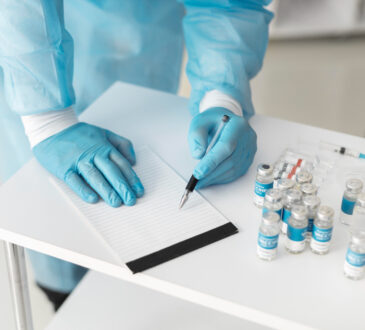
I’ve spent years researching addiction support options, talking to clinicians, and helping people understand what quality treatment actually looks like. I’ve seen how early signs of drug or alcohol addiction can be ignored or misunderstood. I also know how hard it is to pick a treatment path when the stakes feel so high. That’s why I took a close look at services like DrugHelp.com—because people need more than information. They need a clear path.
What I’m sharing here comes from firsthand review of how services operate, how they connect you to care, and how they support long-term recovery. I’ve focused this piece on signs you shouldn’t ignore, how co-occurring disorders play a role, and how to find real help fast. If you’re looking for something reliable, this is where to start.
When the Signs Are No Longer Subtle
You probably already suspect something’s wrong—maybe not in yourself, but in someone close to you. What starts as weekend use can turn into weekday dependence. Skipping work, hiding behavior, unexplained mood swings, money disappearing—those aren’t isolated events. I’ve seen how quickly the line gets crossed from casual use to dependency.
Withdrawal symptoms are another strong indicator. Whether it’s sweating, nausea, tremors, or extreme irritability when the substance wears off, that’s your body adapting to long-term exposure. At that point, this isn’t about willpower anymore—it’s about needing professional help to safely stop.
It’s common to overlook how much trauma plays into substance use. If someone has unresolved trauma or shows signs of anxiety or depression, there’s a real chance that drugs are being used to manage emotional pain. Understanding the connection between PTSD and addiction can change how you approach recovery. If trauma is part of the picture, treating only the substance use won’t be enough.
Why the Long-Term View Matters
There’s a tendency to focus on the immediate fallout—job loss, relationships breaking down, legal issues—but that’s just the surface. If you’re wondering what are the long term risks of drug abuse, you’re right to ask. Chronic health conditions, cognitive decline, damaged organs, and permanent psychological changes are all real possibilities. I’ve spoken to people who assumed they had more time. Most of them didn’t realize how quickly long-term damage can set in, especially when multiple substances are involved.
Ignoring treatment only gives addiction more time to build strength. That’s why acting early—even before things feel urgent—often leads to better recovery outcomes.
Choosing the Right Support Network
There’s a wide range of treatment programs out there, and not all of them are built around your needs. What makes DrugHelp.com different is how quickly they connect you with treatment options that match your location, health status, and personal situation. They aren’t a rehab center themselves—they connect you to treatment partners, which gives you more flexibility.
I looked into how their support works. You call, and you’re immediately connected to a treatment specialist. That person listens to your situation and works to find a program that fits—not just a bed that’s available. It’s tailored. Their network spans all 50 states, which means if you’re in Texas, Florida, or California, you can find something close to home.
What stands out to me is how they don’t just focus on detox. They emphasize uncovering root causes of addiction and building skills that help prevent relapse. Whether it’s trauma, anxiety, or family dynamics at play, their treatment partners build that into your recovery plan.
Inpatient or Outpatient: What to Consider
People often ask me whether they need inpatient rehab or if outpatient care is enough. Here’s how I look at it: if someone’s environment makes relapse more likely—like living with others who use, or having no structure—then inpatient care offers that separation and focus. But if someone has strong support at home and a manageable level of dependence, outpatient might be the right fit.
DrugHelp.com can walk you through that decision. Their team helps assess what kind of environment you’ll need to succeed and points you toward programs that match. That saves time and stress when you’re already overwhelmed.
What Real Recovery Should Include
You want a program that doesn’t just get you sober but teaches you how to stay that way. That means behavioral therapy, group support, accountability, and practical life tools. If those aren’t part of the plan, relapse becomes more likely.
From what I’ve seen, the treatment affiliates that DrugHelp.com works with build their programs with this in mind. They help people work on relationship repair, health stability, and long-term structure. That’s how you make sobriety stick—not through fear or shame, but by building something new.
Why Delaying Help Is a Risk
Every week that passes without action makes recovery harder. The brain becomes more dependent, and the body takes more damage. I’ve seen people wait too long and struggle with health issues that could’ve been avoided with earlier care. If you’re noticing the signs in yourself or someone else, don’t wait for a bottom. Reach out.
Final Thoughts
You don’t have to sort through this alone. If you’re searching for a place to start or feel overwhelmed by all the rehab options out there, DrugHelp.com is a strong resource. Their support line runs 24/7, and they’ll help guide you toward treatment that works. Recovery is possible, but it’s a lot easier when you have the right people helping you through it.




